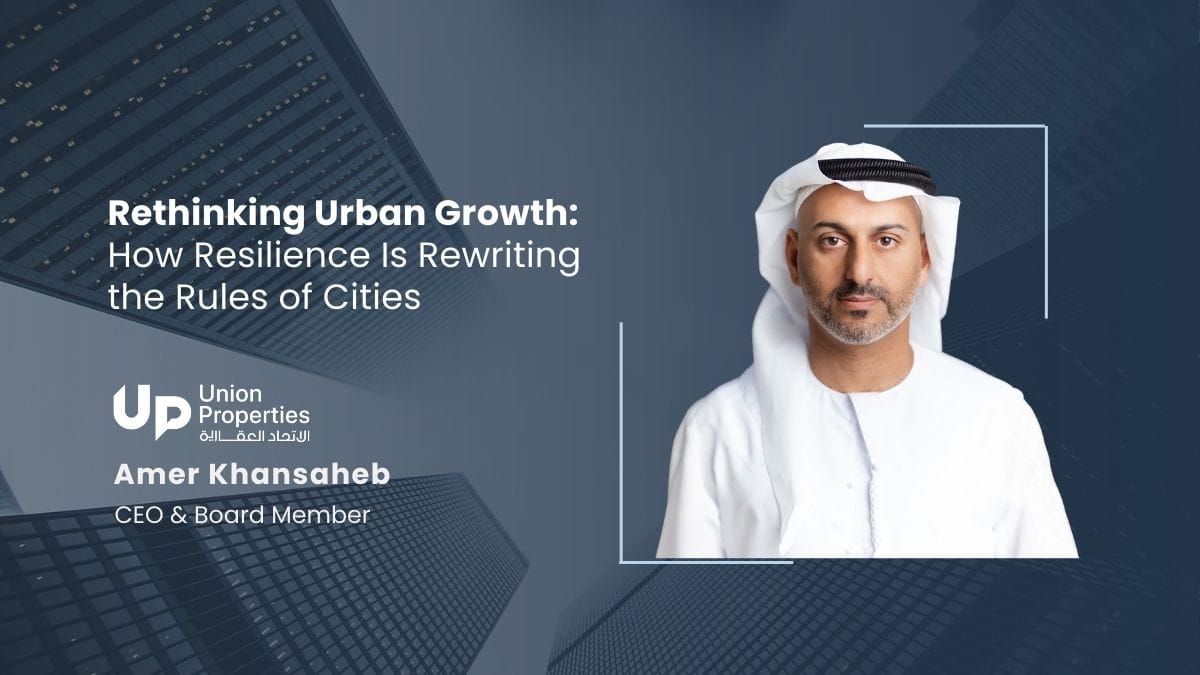Real estate tokenization is transforming how people buy, sell and invest in property. Using smart contracts, ownership can be represented as digital tokens, cutting out middlemen and speeding up transactions. Meanwhile, stronger regulatory frameworks such as MiCA (Markets in Crypto-Assets Regulation) are increasing transparency, investor protection and trust.
We’ll summarise the research, explain how tokenization works in real estate, show you what regulations like MiCA and ERC-1400 mean in practice, and help you see how to use this knowledge to make better investment decisions.
Summary of the Research
A recent study published in the Journal of Property Investment & Finance (Mottaghi, Steininger & Yanagawa, 2024) looks at how tokenization of real-world assets, especially real estate, is evolving. The authors explain that two major forces are driving this change: smart contracts, which automate the buying and selling process on the blockchain, and regulatory frameworks, which build trust and create a safer environment for investors.
To put it simply, tokenization means turning a property into digital tokens that can be traded more easily, almost like shares in a company. For example, instead of one person needing millions to buy a whole building, many investors could each own a small percentage by purchasing tokens. This makes property investment more accessible, faster and cheaper than traditional methods.
The research also highlights the importance of rules like the EU’s Markets in Crypto-Assets Regulation (MiCA), which is coming into force in December 2024. Just as a common driver’s licence allows people to drive across Europe, MiCA aims to create a common standard for crypto-asset providers. This clarity could speed up adoption of tokenized real estate across borders, paving the way for more innovation and investor confidence.
If you’d like to see the latest numbers and visual data on market size, adoption rates, and institutional interest, visit our Market Watch on Real Estate Tokenization. It provides up-to-date charts that back up these insights and show how smart contracts and MiCA regulations are shaping the market today.
Regulation & Real-Estate Tokenization: What the Findings Mean for Today’s Property Market
The research shows clear signs that tokenization of real estate is moving from theory to practice and that the choices governments and regulators make today will shape which markets benefit most. These insights matter especially for cities like London and Dubai, where property demand, investor interest and regulatory change are all converging.
Here are the key takeaways and what they mean, now:
Growing Regulatory Clarity is Unlocking Investment
Laws like MiCA in the EU (coming into force in December 2024) are creating standards for crypto-assets and tokenised securities. This gives investors more confidence because the legal risks become lower and compliance becomes more predictable. For markets like London, which already has strong financial regulation (via the FCA), this added clarity could attract more international capital into tokenized real estate. In Dubai, regulators like VARA and agencies such as the Dubai Land Department are already laying groundwork to support tokenisation frameworks.
Fractional Ownership & Liquidity Are No Longer Just Promises
One of the biggest barriers for regular investors has been high entry costs and illiquid property markets. Tokenisation + smart contracts make it real to own small shares of prime property, sell quickly and access returns without the full overhead. For example, UK platforms already allow investment into property with significantly lower minimum sums, and Dubai has seen tokenised property offerings (luxury units fractioned into tokens) sell out rapidly among global buyers.
Technological & Regulatory Infrastructure are Accelerating
Blockchains are improving in speed, cost and interoperability. Standards such as those modelled on ERC-1400 or other security token frameworks move tokens across platforms more easily and help ensure legal enforceability. In Dubai and London, pilots and frameworks are emerging; for instance, London’s regulatory sandbox approach under the FCA, and Dubai’s Digital Real Estate Initiatives. When tech and regulation both advance, risk drops and adoption rises.
Potential Risks & Market Effects to Watch Right Now
Price Pressure & Access
As property becomes fractionalised, demand may increase in certain high-growth markets, pushing up prices. Those who cannot access token offerings (due to regulation, capital, or geographic barriers) might be left out.
Legal and Cross-Border Challenges
Even with MiCA and similar laws, harmonisation among jurisdictions is still patchy. Rules in the US, Europe, UAE differ, so investors must understand local regulations, tax, KYC/AML, etc.
Environmental & Social Concerns
Blockchain’s energy usage, transparency in who owns tokenised assets, and the effect on traditional property sectors (such as agents, brokers, and legal services) are under scrutiny.
What This Means for You If You’re Considering Tokenised Real Estate Investment
- If you’re in London, you may benefit soon: lower minimum investment thresholds and better protections under FCA + EU laws make tokenised options more viable.
- In Dubai, rapid regulatory developments and high investor demand (including global investors) make it an especially promising market for entering tokenised real estate now.
- But in both cases, due diligence is crucial: check whether the token is legally recognised as a security or asset, what rights come with it (income, voting, resale), and whether the platform is compliant locally.
How Tokenisation Affects Buyers, Investors and Residents
For Buyers
Tokenisation means that property transactions can be faster, cheaper and more transparent. If you are considering buying a home, this research shows the trend is moving towards a market where paperwork and delays are reduced.
However, right now, most tokenised projects are still at the pilot stage. The risk is that legal frameworks differ between countries, so not every purchase is fully recognised as ownership yet. If you are buying primarily for your own residence, traditional purchases may still be safer in the short term, while tokenised ownership could be an option for smaller, diversified exposure.
For Investors
For investors, tokenisation opens doors. Instead of needing millions to enter prime property markets, fractional ownership allows you to buy small shares of commercial towers in London or luxury apartments in Dubai. Current strategies include:
- Diversification: Holding tokens in multiple locations or asset types.
- Liquidity Focus: Choosing platforms where resale markets are already active.
- Risk Balancing: Combining traditional property holdings with tokenised assets for higher flexibility.
Right now, commercial properties and high-end residential units are among the most promising tokenisation targets, since they attract institutional and global investors. Apartments in major hubs like Dubai Marina or Canary Wharf are already being explored for tokenised investment, offering potential rental yields alongside capital growth.
For Residents
Residents may feel the impact in a different way. As tokenisation lowers the investment threshold, demand for property in attractive cities can rise, putting upward pressure on prices. This can benefit existing homeowners, as their property value may increase.
On the other hand, it could make housing less affordable for first-time buyers if demand significantly outpaces supply. Lifestyle changes may also follow: faster, more digital property transactions could make relocating easier, and in the long term, renting from tokenised property funds could become more common than dealing with individual landlords.
Final Tip: Get the Right Guidance Before You Step In
Tokenisation sounds exciting (and it is) but it is not without risks. If you’re considering buying or investing, the biggest challenge is knowing whether a specific project is legally sound, financially viable, and aligned with your goals. This is where good advice makes all the difference.
Unlike most agents or platforms that profit only when you buy, Entralon acts as a neutral advisor. We don’t charge you fees for consultation or even for completing a purchase. Instead, we use real market data and regulatory insights to help you decide whether to go traditional, tokenised, or a mix of both. That means you’ll get recommendations designed for your best outcome, not someone else’s commission.
Before you commit to any deal, consider speaking with Entralon. Our free, data-driven guidance ensures you fully understand both the opportunities and the risks of tokenised real estate, so you can move forward with confidence.
FAQs
Is buying property through tokenisation legal?
Yes, but it depends on where you are. In the EU, the new MiCA regulation (effective December 2024) provides a clear legal framework. In Dubai, regulators like VARA are actively shaping rules to support tokenised real estate. In the UK and US, projects must comply with securities and property law. Always check whether the platform is licensed in your jurisdiction.
Can I invest in real estate with a small budget?
That’s one of the biggest advantages of tokenisation. Through fractional ownership, you can buy a share of a property with far less capital than purchasing an entire unit. For example, instead of needing millions to buy in central London, you could invest a few thousand into tokens that represent ownership.
Does tokenisation mean property prices will rise?
It can. By lowering the entry barrier, more investors can join the market, which may increase demand and push prices higher in prime locations like London, Dubai or Singapore. This benefits current homeowners but could make it harder for first-time buyers in high-demand areas.
What types of property are most suitable for tokenisation?
At the moment, commercial buildings and luxury residential units are leading the way, because they attract global investors and institutions. However, as the market matures, we may see tokenisation expand into mid-range residential properties and even rental portfolios.
What are the risks of investing in tokenised real estate?
The main risks are regulatory uncertainty, platform reliability, and market liquidity. Not all jurisdictions treat tokens as legal ownership yet, and not every platform has an active resale market. As with any investment, diversification and careful due diligence are essential.



























Discussion